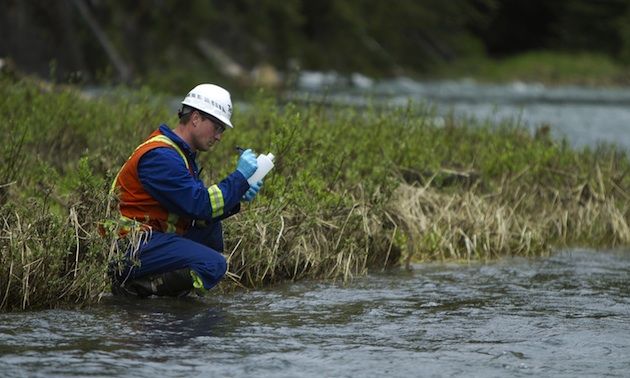Careers in Environmental Chemistry
 Environmental chemists monitor what is in the air, water, and soil to study how chemicals enter the environment, what affects they have; as well as, how human activity affects the environment, advising on the movement and outcome of contaminants in soil and groundwater. Chemists in this field assess long-term risks to ecological and human health.
Environmental chemists monitor what is in the air, water, and soil to study how chemicals enter the environment, what affects they have; as well as, how human activity affects the environment, advising on the movement and outcome of contaminants in soil and groundwater. Chemists in this field assess long-term risks to ecological and human health.
These professionals have more interaction with others and greater variety of work, less likely to be isolated in laboratories. Environmental chemists may also work for state and federal government land management and regulatory agencies. They may also teach and conduct research as faculty members in academia. Typically performing analytical testing or new product development in the lab, or work with users of chemicals in the field, and safety and regulatory issues in an office.
For more information about Environmental Chemistry.
Employment Routes:
- Water Treatment Specialist in Water Treatment and Waste Disposal.
- Environmental Assessment Analyst.
- Environmental Auditor.
- Development Scientist for the Federal Government.
- Research Associate in Universities.
- Environmental Health & Safety Coordinator in Chemical Product Distributors.
- Quality Assurance in Manufacturing (Food, Paper, Chemical, Plastics).
- Analytical Specialist in Engineering Consulting.
More Information on Careers in Environmental Chemistry: ACS.
Responsibilities of Environmental Chemist
While responsibilities do vary significantly from company to company, the basic scope of an environmental chemist is responsible for can be found below:
- Develop data collection methods and systems according to the elements that are under study.
- Design and application of experiments. As well as, analysis of contaminants and pollutants. Investigate aspects of chemicals and processes as they occur in the environment.
- Collect information from observations, samples, and specimens. Record and manage records of observations, samples and specimens in the lab and via fieldwork.
- Qualitative and quantitative approaches for environmental impact assessments & audits. Application of modern analytical instrumentation including spectroscopy, (NMR, Mass, Light), Microscopy.
CSUCI Courses Offered
 Environmental Chemistry Atmosphere and Climate
Environmental Chemistry Atmosphere and Climate Website credit: Heba Sitita
